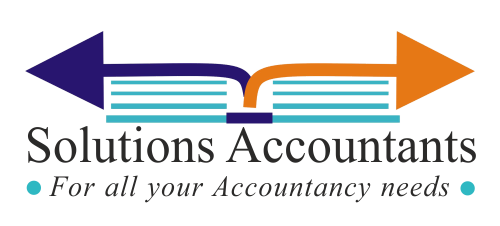Extra Information
Key information regarding UK Taxes, Setting up business and more
Management accounting or managerial accounting is concerned with the provisions and use of accounting information to managers within organizations, to provide them with the basis to make informed business decisions that will allow them to be better equipped in their management and control functions.
In contrast to financial accountancy information, management accounting information is:
- Primarily forward-looking, instead of historically
- Model based with a degree of abstraction to support decision making generically, instead of case based;
- Designed and intended for use by managers within the organization, instead of being intended for use by shareholders, creditors, and public regulators;
- Usually confidential and used by management, instead of publicly reported;
- Computed by reference to the needs of managers, often using management information systems, instead of by reference to general financial accounting standards.
- When it comes to taxes, whether it’s income tax, corporation tax, or VAT, it is wise to ensure you aren’t paying more than you need to.
In the UK, the tax year runs from 6 April through to 5 April. During this time the Government requires everyone to pay an appropriate level of income tax on their earned income, which helps to pay for things like education and healthcare. As well as income tax, you could also be liable for capital gains tax on profits you make from any chargeable assets you have sold, or for tax on gifts you have made during your lifetime. If your estate is over a certain value when you die, it will also be subject to tax, known as Inheritance Tax.
Tax planning is best done with the help of a financial adviser or an accountant. They will be able to help you plan your taxes in advance, and come up with effective strategies that will use the lawful reliefs and allowances to minimise the amount you have to pay. They will usually assess your financial situation, and look at your financial goals to help come up with a suitable strategy for you. You can find a local financial adviser or accountant here.
If you are registered for VAT, you must keep certain business records and VAT records of your sales and purchases. You must also keep a separate summary of your VAT, called a ‘VAT account’.
There is no set way of keeping these records and accounts. In most cases, they can be easily adapted from your normal business records. The main thing is to ensure that they are complete and up to date and that it is easy for VAT officers to access them when you have a VAT inspection.
Company formation is the term for the process of incorporation of a business in the UK. It is also sometimes referred to as company registration. These terms are both also used when incorporating a business in the Republic of Ireland. Under UK company law and most international law a company or corporation is considered to be an entity that is separate from the people who own or operate the company.
The following can be formed by registration at Companies House:
- Public limited company(plc)
- Private company limited by shares (Ltd, Limited)
- Company limited by guarantee
- Unlimited company
- Limited liability partnership (LLP)
- Limited partnership (LP)
- Societas Europaea (SE): European Union-wide company structure
- Community interest company
- European economic interest grouping (EEIG)
Bookkeeping in the context of a business is simply the recording of financial transactions. Transactions include purchases, sales, receipts and payments by an individual or organization. Many individuals mistakenly consider bookkeeping and accounting to be the same thing. This confusion is understandable because the accounting process includes the bookkeeping function, but is just one part of the accounting process.
The accountant creates reports from the recorded financial transactions recorded by the bookkeeper and files forms with government agencies. There are some common methods of bookkeeping such as the single-entry bookkeeping system and the double-entry bookkeeping system. But while these systems may be seen as “real” bookkeeping, any process that involves the recording of financial transactions is a bookkeeping process.

Tax planning is best done with the help of a financial adviser or an accountant. They will be able to help you plan your taxes in advance, and come up with effective strategies that will use the lawful reliefs and allowances to minimise the amount you have to pay. They will usually assess your financial situation, and look at your financial goals to help come up with a suitable strategy for you. You can find a local financial adviser or accountant here.
If you are registered for VAT, you must keep certain business records and VAT records of your sales and purchases. You must also keep a separate summary of your VAT, called a ‘VAT account’.
There is no set way of keeping these records and accounts. In most cases, they can be easily adapted from your normal business records. The main thing is to ensure that they are complete and up to date and that it is easy for VAT officers to access them when you have a VAT inspection.
- Advice on becoming self-employed and registration with HMRC.
- Self-assessment business record keeping advice and setting up accounting record keeping systems, thereby ensuring compliance with HMRC rules regarding record keeping.
- Advice on the National Insurance implications of being self-employed.
- Recommendations on the most cash-flow advantageous business accounting year-end.
- Advice on tax-allowable Locum expenditure e.g. motor expenses, courses, conferences, spouse’s salary, use of home as office.
- Advice on the importance of your home being classed as your business office.
- Advice on maximising available tax relief for use of your car for Locum purposes.
- Advice on the optimum time to purchase new items of capital equipment to accelerate 100% first year capital allowances.
- Advice on contributions to the NHS pension scheme and completion of form GP Locum B.
- Preparation of annual self-employed Locum accounts.
- Advice on becoming a GP Principal or salaried partner.
- Payroll services for any business employees e.g. partner/spouse.
A tax return is a document that must be filed with the HM Revenue & Customs declaring liability for taxation. Different bodies must file different returns with respect to various forms of taxation. The main returns currently in use are:
- SA100 for individuals paying Income Tax
- SA800 for partnerships
- SA900 for trusts and estates of deceased persons
- CT600 for companies paying Corporation Tax
- P35 for PAYE deductions by employers and National Insurance contributions
- VAT100 for value added tax
The introduction of PAYE RTI represents a fundamental reform of Pay As You Earn, requiring all UK employers to notify HMRC of their liability to PAYE at the time or before they make payment to their employees. Payroll software will collect the necessary information and send it to HMRC via the Government Gateway. It represents the largest change to PAYE since its introduction in 1944, where previously employers paid PAYE due to HMRC on account but only declared and reported their PAYE at the year end, with a P35 return.
From April 2013 all employers will be mandated by law into PAYE RTI requiring them to submit their RTI return every time employees are paid as part of payroll arrangements. Pension providers are affected as well as employers.
There will be no parallel operation of old and new PAYE regimes – once in PAYE RTI an employer will continue in PAYE RTI.

